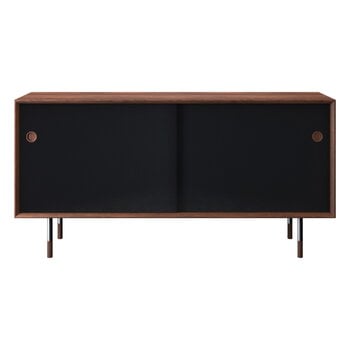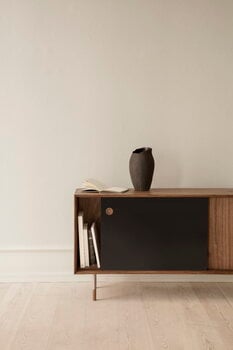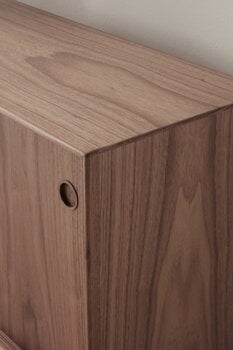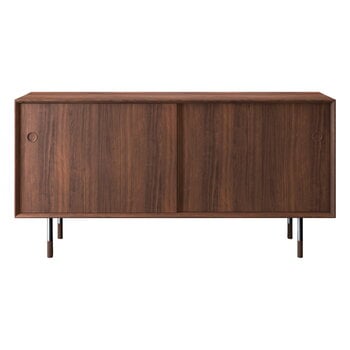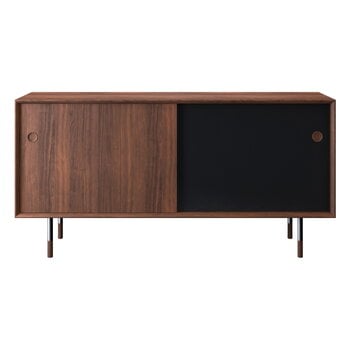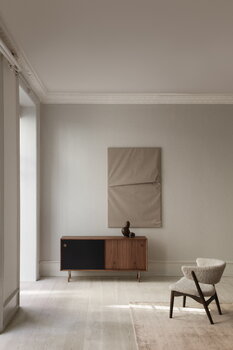The Sibast No 11 sideboard, designed by Arne Vodder, boasts an elegantly timeless design that dates back to the turn of the '50s and '60s and the golden age of Danish design. The gist of the minimalist cabinet lies in its reversible doors, one side of which is the same shade as the frame of the cabinet, and the other side is painted. On this sideboard, the doors are black on the other side.
Originally launched in 1957, the No 11 sideboards attracted a lot of attention in the world of design – the furniture collection was even awarded the first prize of the Milan Triennial in the same year. Even back then, the sideboards were manufactured by Sibast Furniture. In 2021, the manufacturer relaunched the sideboards as a tribute to the decades-long collaboration and friendship between Arne Vodder and the previous owner of Sibast Furniture, Helge Sibast.

